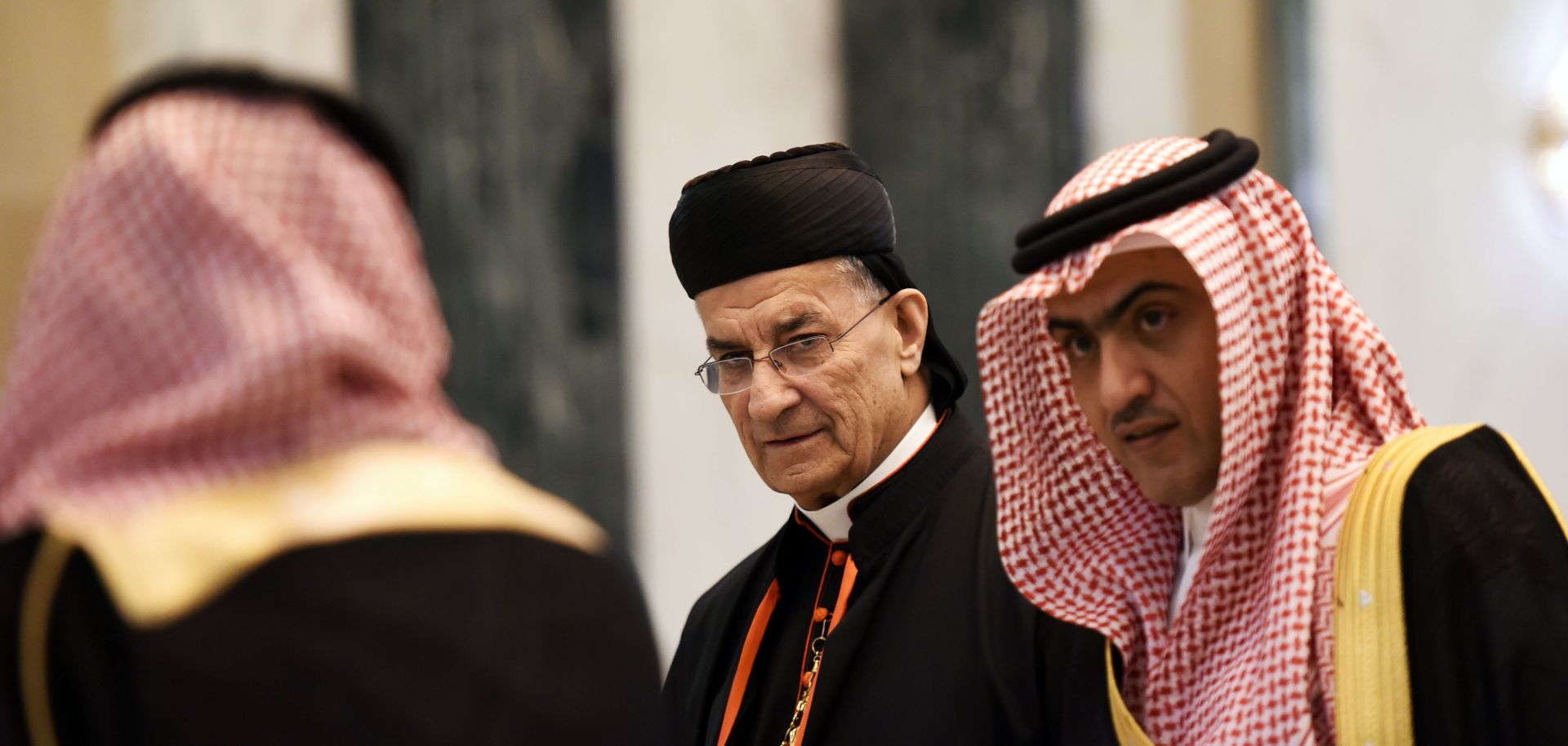ASSESSMENTS
Why Saudi Arabia is Embracing a New Nationalism
Jan 4, 2019 | 10:00 GMT

Lebanon's Christian Maronite Patriarch Beshara Rai (C) arrives for a first-time meeting with Saudi Crown Prince Mohammed bin Salman on Nov. 14, 2017, in Riyadh.
(FAYEZ NURELDINE/AFP/Getty Images)
Highlights
- Saudi Arabia is changing its restrictions on how some expatriates can practice Christianity as part of its strategy to weaken hard-line Islam's defining role in Saudi identity.
- In doing so, Riyadh increases the space for Saudi nationalism to take root, but an ascendant Saudi nationalism will also eventually challenge the monarchy's role in managing the state.
- Nationalism will increasingly color Saudi relations with other states and become a new check on the monarchy's power.
Subscribe Now
SubscribeAlready have an account?
